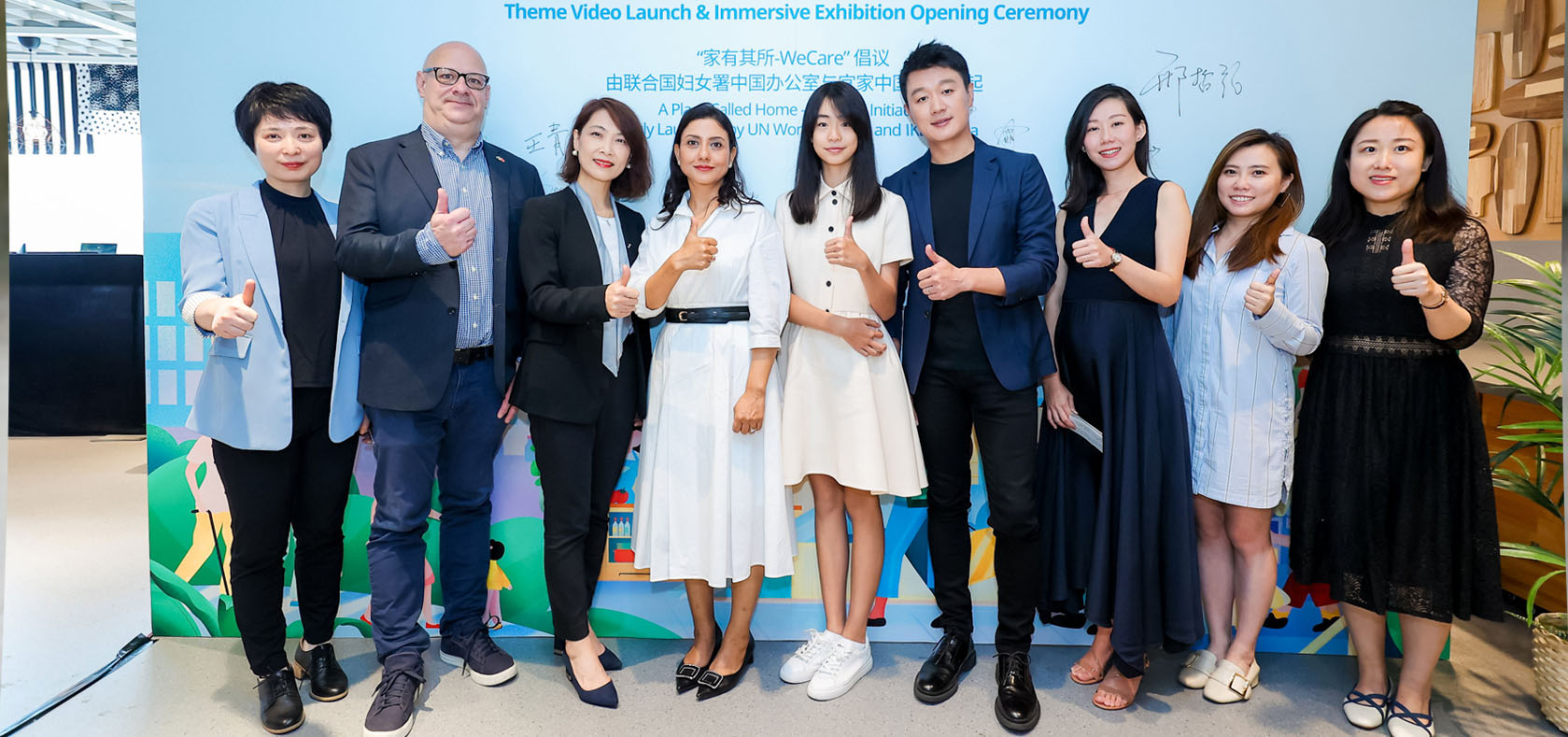UN Women China video and exhibition urge people to do their fair share of care and domestic work
Date:
Author: Liyue Zhou

Beijing, China — From cooking and cleaning to taking care of children and the elderly, household care work is the backbone of thriving families, communities and economies. Yet many cultures traditionally have regarded men as the breadwinners and women as the caregivers, with unpaid care work their “natural responsibility”. In China, women spend around 2.5 times as much time as men on unpaid care work. And the COVID-19 pandemic has increased this unequal burden.
To raise the awareness of the general public and the private and public sectors about the problem, UN Women China, partnering with IKEA China, launched the Do More, for Her and for the Family Theme Video and Immersive Exhibition on 15 September at the IKEA Siyuanqiao branch in Beijing.
Well-known actor Tong Dawei, UN Women Goodwill Ambassador for China, attended the opening ceremony with his daughter.
“This video is so powerful and I hope that more male friends can watch it,” said Tong, 42. “Unpaid care work can be easily unseen or under-recognized, undervalued. For our partners’ contribution to the family, don’t just say ‘thank you’. Take action and share the responsibility.”
Tong’s daughter, 13, showed a touching vlog of her cooking at home with her dad.
Smriti Aryal, Head of UN Women China, said at the ceremony: “Changing gender norms starts with each one of us. Our campaign champions the ‘recognize, reduce, redistribute’ principle, which reinforces the notion that care is a fundamental public good and an essential responsibility of men and women alike. We call for men as well as women to recognize the economic and social value of unpaid care, and for everyone to go beyond traditionally assigned gender roles to participate in care work with a sense of pride and shared responsibility.”
“Share the Care” should not be just a slogan, but should be translated into action, Aryal said.
The video was produced by UN Women with technical help from a local partner, Taskforce Consultancy. It shows one a day in the stressful life of a working woman who must juggle taking care of her husband, school-age son, office work and household chores – and the relief she finds when her husband realizes that he should share the care.
The exhibition, also designed by UN Women and Taskforce Consultancy, comprises multimedia works that show women doing unpaid care work under different scenarios. The works call on all family members to do their share and support women as they pursue their personal and professional goals. The exhibition is open to the public until 28 September.
The video and exhibition are part of the project, A Place Called Home – WeCare, that UN Women China is implementing in partnership with IKEA China. The project promotes women’s economic empowerment by working with the private sector, the government and the public on coordinated efforts to tackle the problems of unpaid care and domestic work and violence against women.
[Chinese with English subtitle] UN Women China office together with IKEA China launched the theme video and exhibition “Do more, for her and for the family” yesterday in Beijing. The project aims not only to demonstrate the value of unpaid care work but also calls for a more positive social norm for the equitable distribution between all genders. How long do you normally spend doing domestic chores or taking care of your loved ones? Watch the video, share the care, let change happen.